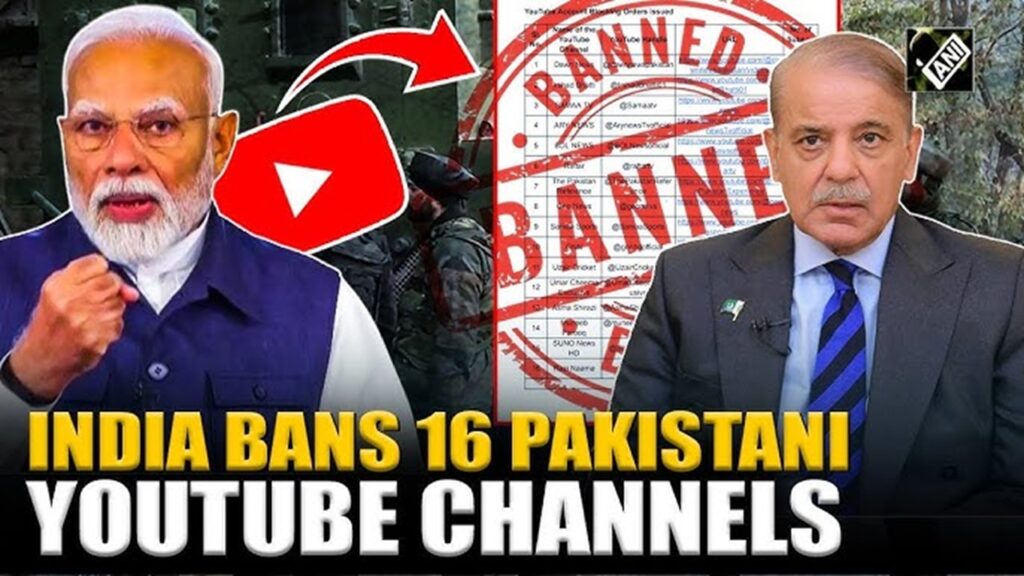India Bans 16 Pakistani News Channels, Rebukes BBC Over Pahalgam Attack Coverage
By our correspondent, New Delhi:
In a decisive move following the deadly Pahalgam terror attack that claimed 26 lives, India has blocked 16 major Pakistani YouTube channels, accusing them of spreading misinformation and inflammatory content. The government also issued a stern warning to the BBC for its use of the term “militants” in reporting the attack, signaling heightened scrutiny of media narratives amid rising tensions.
Sweeping Ban on Pakistani Media
The Indian government has prohibited access to 16 prominent Pakistani YouTube channels, collectively boasting 63 million subscribers, for allegedly disseminating misleading and communally sensitive material. The banned channels include leading news outlets such as Dawn News, Samaa TV, ARY News, Bol News, Geo News, Suno News, and Raftar. Additionally, the YouTube channel of former cricketer Shoaib Akhtar, with over 3.5 million subscribers, and those operated by journalists like Irshad Bhatti, Asma Shirazi, Umar Cheema, and Muneeb Farooq have been restricted. Other channels, such as The Pakistan Reference, Samaa Sports, Uzair Cricket, and Razi Naama, also face the ban. Indian users attempting to access these channels encounter a YouTube message stating the content is unavailable due to a government order citing national security or public order, with further details available in Google’s Transparency Report.
Response to Pahalgam Terror Attack
The restrictions follow the tragic Pahalgam attack in Baisaran valley, where terrorists opened fire, killing 26 people. The government claims the banned channels propagated false narratives targeting India, its military, and security forces, exacerbating communal tensions. This marks a significant escalation in India’s efforts to curb foreign media influence perceived as hostile, particularly in the context of the volatile India-Pakistan relationship.
BBC Faces Government Ire
India also criticized the BBC for its coverage of the Pahalgam attack, specifically objecting to the term “militants” used to describe the perpetrators. In a strongly worded letter to the BBC’s India head, Jackie Martin, the Narendra Modi administration condemned the terminology, insisting on the use of “terrorists.” The BBC’s article, titled Pakistan suspends visas for Indians after deadly Kashmir attack, was cited as a point of contention. The government has vowed to closely monitor the BBC’s future reporting on the issue, raising concerns about press freedom and editorial independence.
Broader Implications
The bans and warnings reflect India’s broader strategy to control narratives surrounding national security incidents. By targeting both Pakistani media and international outlets like the BBC, the government aims to shape public perception and counter misinformation. However, these actions have sparked debates over censorship and the balance between security and free expression, with critics arguing that such measures could stifle legitimate journalism.


